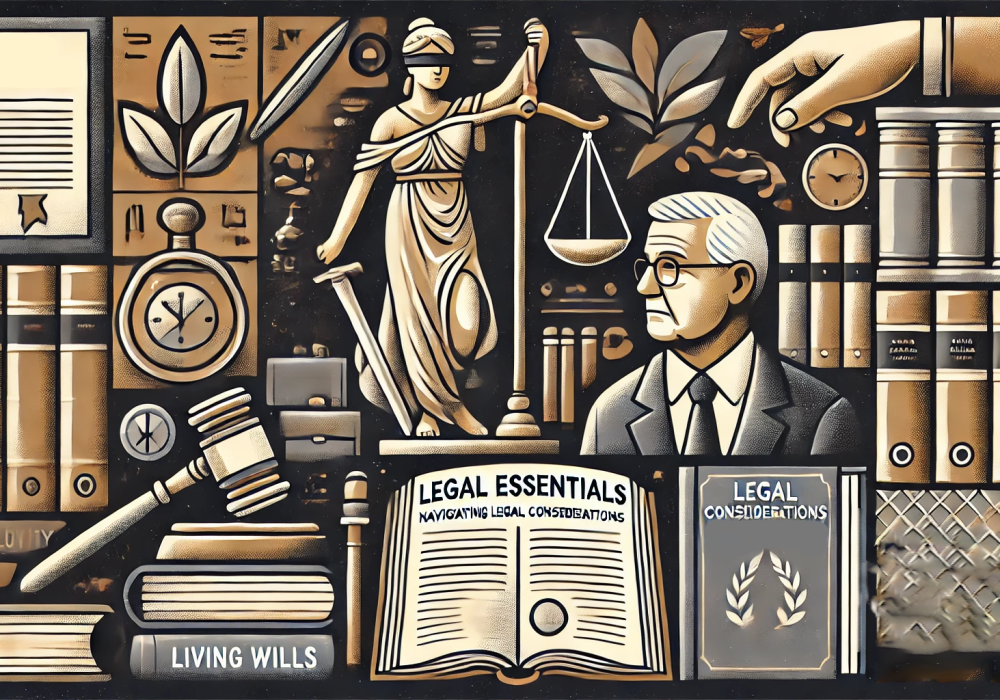Legal Essentials: Navigating Legal Considerations for Assisted Living

Legal Essentials: Navigating Legal Considerations for Assisted Living
With the transition to assisted living, understanding important legal documents like Power of Attorney and Living Wills is crucial. It’s crucial to prepare in advance for any unforeseen circumstances that may arise. Check out Senior Legal Considerations for more information on navigating these vital aspects of legal preparation.
Legal Documents: The Essential Toolkit
Power of Attorney: Who's in Charge?
Charge: When preparing to move to assisted living, it's crucial to consider who will make decisions on your behalf. A Power of Attorney (POA) document is a legal tool that designates someone to handle your financial or medical affairs if you become incapacitated. It is important to have a trusted individual or family member appointed as your POA to ensure your wishes are followed. You can find a comprehensive checklist on moving to assisted living here: A Checklist for Moving to Assisted Living.
Living Wills: Your Wishes, Your Way
Your: A Living Will is another critical document to have in place when moving to assisted living. This legal document outlines your medical preferences in case you are unable to communicate them yourself. It allows you to specify the types of medical treatments you would want or not want in various scenarios. By creating a Living Will, you ensure that your healthcare decisions align with your values and beliefs.
Essential: It's important to have discussions with your loved ones about your preferences and ensure that your Living Will is easily accessible to medical providers. This document offers peace of mind and ensures that your wishes are respected, even in challenging circumstances.
Preparing for the Unexpected
Little do we often think about the legal documents necessary when moving to assisted living. However, being prepared for the unexpected is crucial in ensuring a smooth transition and peace of mind. To dive deeper into the legal considerations for assisted living, read more here: Navigating Legal Matters in Independent Living.
Advanced Directives: A Guide to Medical Decision-Making
|
Power of Attorney |
Appointing someone you trust to make important decisions on your behalf in case you become incapacitated. |
|
Living Will |
Outlining your medical wishes in case you are unable to communicate them, ensuring your desires are respected. |
Having advanced directives such as a Power of Attorney and Living Will in place is crucial for ensuring your healthcare preferences are known and respected when you are unable to make decisions for yourself.
Guardianship: When Someone Else Takes the Reins
With respect to guardianship, it's important to understand the legal process and implications. Guardianship involves a court appointing a person to make decisions on behalf of someone who is deemed incapacitated or unable to make decisions for themselves.
While it's a sensitive topic, considering guardianship and having discussions with loved ones about who you trust to make decisions on your behalf can provide peace of mind and ensure your wishes are upheld.
Legal Essentials: Navigating Legal Considerations for Assisted Living
Some of the most important legal documents to consider when moving to assisted living are Power of Attorney and Living Wills. These documents are crucial for ensuring that your wishes are respected and that you have someone designated to make decisions on your behalf if you become incapacitated. It's important to prepare these documents well in advance of needing them, as they can provide peace of mind knowing that your affairs will be handled according to your wishes.
Reading Between the Lines: What to Look for in a Contract
For seniors considering assisted living, it's vital to carefully review and understand the terms of the contract before signing. Look for details such as the services provided, costs, admission criteria, and policies regarding changes in care needs. Make sure the contract outlines the rights and responsibilities of all parties involved to avoid any misunderstandings down the line.
Negotiating Terms: Your Rights and Options
Contracts for assisted living can be complex, and it's important to know that you have rights and options when it comes to negotiating terms. Don't hesitate to ask questions, seek clarification on any unclear provisions, and advocate for your needs. It's crucial to understand the terms of the contract fully and to ensure that they align with your expectations and preferences.
Plus, having a Power of Attorney and Living Will in place can give you added peace of mind knowing that you have designated someone to make decisions on your behalf and that your wishes will be carried out in the event that you are unable to communicate them yourself. By taking the time to prepare these legal documents and carefully reviewing your assisted living contract, you can navigate the legal considerations with confidence and ensure that your rights and interests are protected.
Final Words
With these considerations in mind, it is crucial to ensure that you have all the necessary legal documents in place before making the move to assisted living. Power of Attorney and Living Wills are necessary tools that can help protect your interests and ensure that your wishes are followed in case you are unable to make decisions for yourself. Taking the time to prepare these documents now can provide peace of mind for both you and your loved ones.